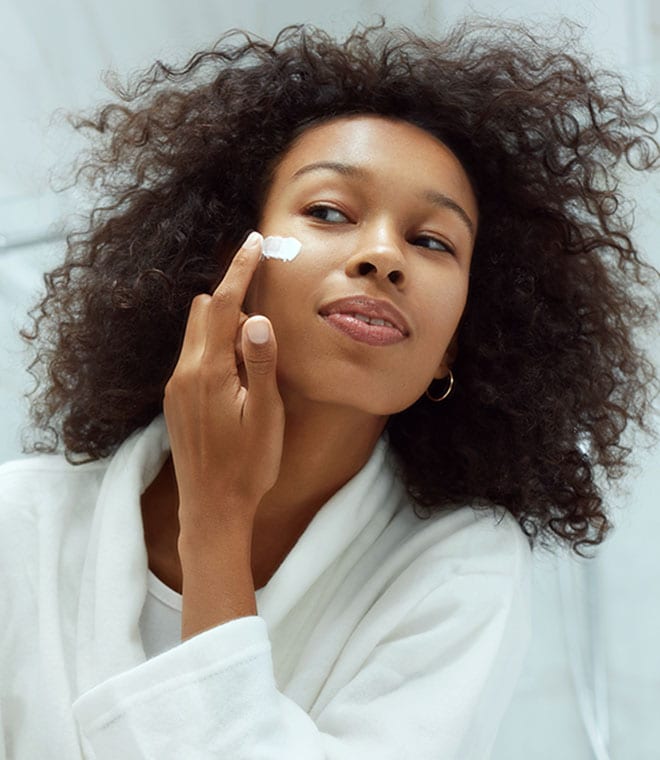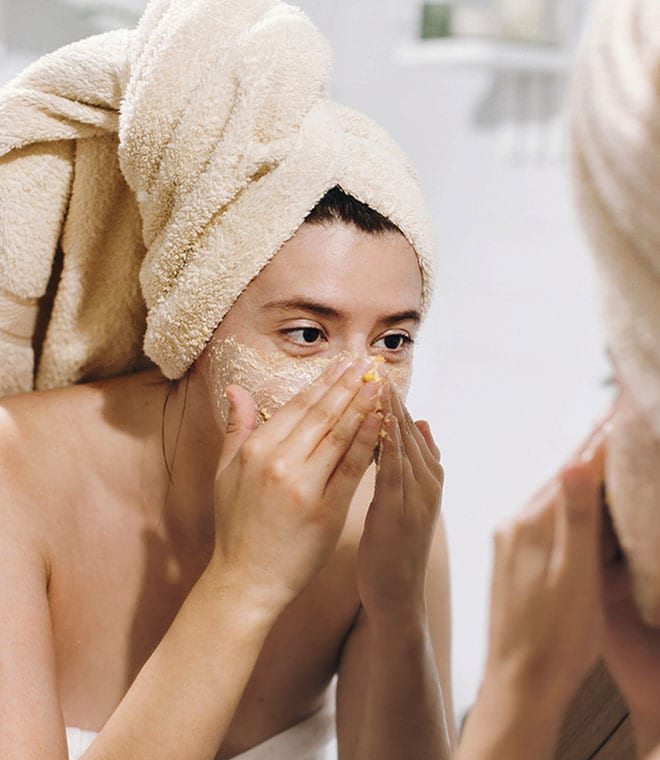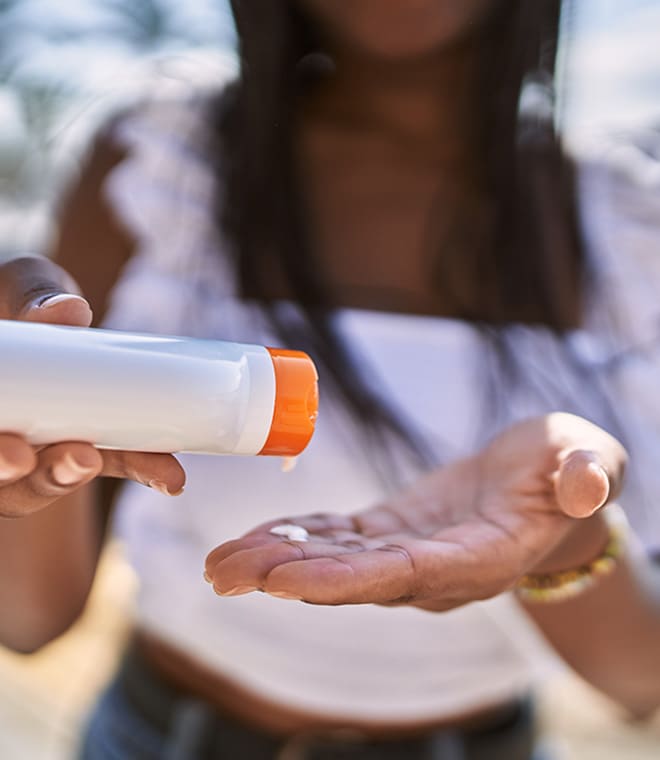Beauty
What is sunscreen with zinc?
By Anna H. Chacon, MD, Fellow of the American Academy of Dermatology Aug 27, 2024 • 4 min
Applying sunscreen regularly can reduce your risk of painful sunburns, premature signs of aging and certain types of skin cancer. While many kinds of sunscreen are available, products with zinc are a popular choice due to their benefits.
The basics of sunscreen with zinc
Zinc oxide is a white powdery substance derived from minerals that the U.S. Food and Drug Administration (FDA) has approved for use as an active ingredient in sunscreens.
Sunscreens that contain zinc oxide are physical sunscreens, meaning they form a barrier that reflects ultraviolet (UV) rays before they reach the skin. Physical sunscreens differ from chemical sunscreens, which work by absorbing UV.
Some sunscreens with zinc contain a second physical sunscreen called titanium dioxide. You can also find sunscreens that combine zinc oxide with chemical sunscreens. These products are known as hybrid sunscreens.
Benefits of sunscreen with zinc
Effectiveness is one of the biggest benefits of sunscreen with zinc. Zinc oxide provides broad-spectrum protection, meaning that it reflects both UVA and UVB rays. Physical sunscreens also tend to be a gentler choice for people with sensitive skin.
Compared to chemical products, zinc sunscreens often have a longer shelf life. They also tend to be thicker. The texture may make it easier to see where you’ve already applied sunscreen, so you’re less likely to miss spots.
Drawbacks of sunscreen with zinc
While the texture of zinc oxide sunscreen can be beneficial, some people find it more difficult to apply. There is also a greater risk of the sunscreen rubbing off prematurely because it doesn’t penetrate the skin.
To address these concerns, some manufacturers use micronized zinc oxide, creating smaller nanoparticles of the ingredient. This process can make zinc sunscreen easier to apply and increase its staying power.
Choosing a sunscreen with zinc
If you prefer sunscreen with zinc, consider the following to select the best product for your needs:
- Sun protection factor (SPF): The SPF of a zinc sunscreen is a measure of how much of the sun’s rays the product reflects. Most experts recommend a minimum SPF 30. Your healthcare provider can recommend the ideal SPF level for you.
- Form: Most zinc oxide sunscreens are creams, lotions or sticks. Any type can provide adequate sun protection, so you’re free to choose the one that you prefer.
- Skin type: If you have oily or acne-prone skin, noncomedogenic sunscreens may be the best choice, as they’re less likely to clog pores. For sensitive skin, look for products that are free of fragrances and parabens.
- Water-resistance: Sunscreens labeled as water-resistant can remain in place for up to 40 or 80 minutes while swimming.
Updated August 2024.
Sources:
- https://www.skincancer.org/skin-cancer-prevention/sun-protection/
- https://www.skincancer.org/skin-cancer-prevention/sun-protection/sunscreen/
- https://www.skincancer.org/press/the-skin-cancer-foundation-offers-tips-on-choosing-and-using-sunscreen/
- https://www.aad.org/media/stats-sunscreen
- https://www.aad.org/public/everyday-care/sun-protection/shade-clothing-sunscreen/understand-sunscreen-labels
- https://sites.utexas.edu/think-twice/2019/05/31/physical-vs-chemical-sunscreens/
- https://www.health.harvard.edu/staying-healthy/the-science-of-sunscreen
- https://www.canr.msu.edu/news/what-s-the-risk-zinc-oxide
- https://www.massgeneralbrigham.org/en/about/newsroom/articles/uva-and-uvb-ray-differences



